Understanding Electrical Repair: Ensuring Safety and Efficiency
Electrical repair is a critical aspect of home and commercial maintenance. Whether it’s fixing a faulty outlet, addressing flickering lights, or upgrading an outdated electrical panel, electrical repairs ensure that your property remains functional, safe, and up to code. Understanding the fundamentals of electrical repair can help you recognize potential issues and decide when to call a professional.
The Importance of Electrical Repair
Electricity is a cornerstone of modern living, powering appliances, lighting, and essential systems like heating and cooling. Over time, electrical components can deteriorate due to age, wear, or environmental factors. Failing to address these issues can lead to:
- Safety Hazards:
- Damaged wiring or malfunctioning outlets can result in electrical shocks or fire hazards.
- Inefficiency:
- Faulty electrical systems waste energy, leading to higher utility bills.
- Equipment Damage:
- Power surges or inconsistent currents can harm sensitive electronics and appliances.
Timely repairs help prevent these problems, ensuring your electrical system operates efficiently and safely.
Common Electrical Issues Requiring Repair
1. Flickering Lights
Flickering lights may seem minor but often indicate loose wiring, overloaded circuits, or issues with the fixture itself. Diagnosing and repairing this promptly prevents further complications.
2. Tripped Circuit Breakers
Frequent tripping of circuit breakers suggests an overloaded circuit, faulty appliances, or problems with the breaker itself. Upgrading circuits or redistributing electrical loads can resolve this.
3. Dead Outlets
Outlets that stop working may have loose connections, internal damage, or tripped Ground Fault Circuit Interrupters (GFCIs). Repairing or replacing these ensures reliable power delivery.
4. Buzzing or Sparking
A buzzing sound from outlets or switches often points to loose connections or faulty wiring. Sparking, on the other hand, is a serious safety concern that demands immediate attention.
5. Burning Smell
A burning odor near electrical outlets or panels indicates overheating or potential fire hazards. Disconnect power and seek professional repair immediately.
DIY vs. Professional Electrical Repair
While minor repairs like replacing a light bulb or resetting a tripped breaker can be handled by homeowners, most electrical repairs require professional expertise. Here’s why:
- Safety:
- Electricity is dangerous. Improper handling can cause severe injuries or fires.
- Compliance:
- Professionals ensure repairs comply with local codes and standards, avoiding penalties or hazards.
- Expertise:
- Certified electricians can diagnose and fix complex issues efficiently.
Attempting DIY repairs without proper knowledge and tools can worsen the problem or lead to costly damage.
Steps in Professional Electrical Repair
When hiring an electrician, you can expect a systematic approach:
- Inspection:
- The electrician assesses the issue, checking wiring, circuits, and components for faults.
- Diagnosis:
- Using tools like multimeters, they identify the root cause of the problem.
- Repair:
- Depending on the issue, repairs may include rewiring, replacing damaged parts, or upgrading components.
- Testing:
- After repairs, the system is tested to ensure it functions correctly and safely.
- Documentation:
- Many professionals provide a report detailing the work done, including any recommendations for future maintenance.
Preventing Electrical Problems
Preventative maintenance reduces the need for frequent repairs. Key tips include:
- Regular Inspections: Have your electrical system inspected every few years, especially in older properties.
- Avoid Overloading Circuits: Distribute power usage evenly and avoid using too many high-wattage devices on a single circuit.
- Upgrade Old Systems: Replace outdated panels and wiring to handle modern electrical demands safely.
- Protect Electronics: Use surge protectors to guard against voltage spikes.
When to Call an Electrician
Some signs indicate the need for immediate professional attention:
- Persistent electrical shocks.
- Frequent breaker trips despite troubleshooting.
- A noticeable decrease in power performance.
- Visible damage to outlets, cords, or panels.
Never ignore these warnings, as delays can escalate risks.
Conclusion
Electrical repair is essential for maintaining the safety and efficiency of your home or business. While understanding common issues can help you address minor problems, most electrical repairs require professional expertise. Prioritize regular maintenance and seek professional help when needed to ensure your electrical system remains reliable and secure.
